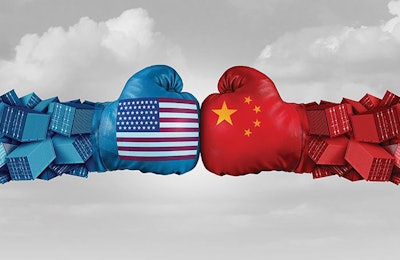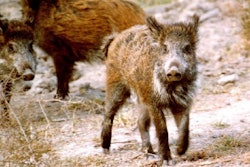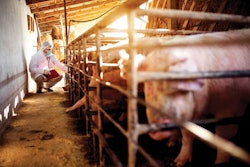
Pork, corn, soybeans and cotton affected
China has halted large purchases of some U.S. agricultural products, according to reports.
This comes after the Trump administration said last week that it would remove special treatment for Hong Kong to punish China.
In October 2019, China had agreed to buy up to $50 billion in U.S. farm products as part of a tentative trade deal between the two countries. The “first phase” of a trade deal was announced by U.S. President Donald Trump on October 11.
Reports say Chinese state-owned agricultural buyers Cofco and Sinograin were ordered to halt purchases including U.S. pork, soybeans, corn and cotton. According to a Reuters report, China could halt imports of more U.S. farm products if the U.S. takes further action on Hong Kong. That report said 10,000 to 20,000 tons of U.S. pork orders have been canceled since Trump’s announcement on May 29.
From January through March, China purchased between US$3 billion and US$5 billion of U.S. agricultural products. In that same period, U.S. pork exports to China set a record high as the country took advantage of low meat prices to stock up.
In 2017, before the start of the U.S.-China trade war, China purchased approximately $24 billion worth of U.S. food and agricultural products.
The National Pork Producers Council (NPPC) said it is skeptical of these reports because “China is in serious need of reliable, affordable sources of pork” and that it hopes the U.S. and China remain in “productive dialogue.”
“The country is the world’s biggest producer and consumer of pork,” an NPPC spokesperson told Feed Strategy in an email. “However, China’s hog supply has been ravaged by African swine fever — a disease affecting only pigs with no human health or food safety risks — resulting in a tremendous shortage of pork and mounting food price inflation. The U.S. is typically the largest pork-exporting nation in the world and generally the lowest-cost producer in the world.”
Other industry groups have not yet responded to requests for comment.












